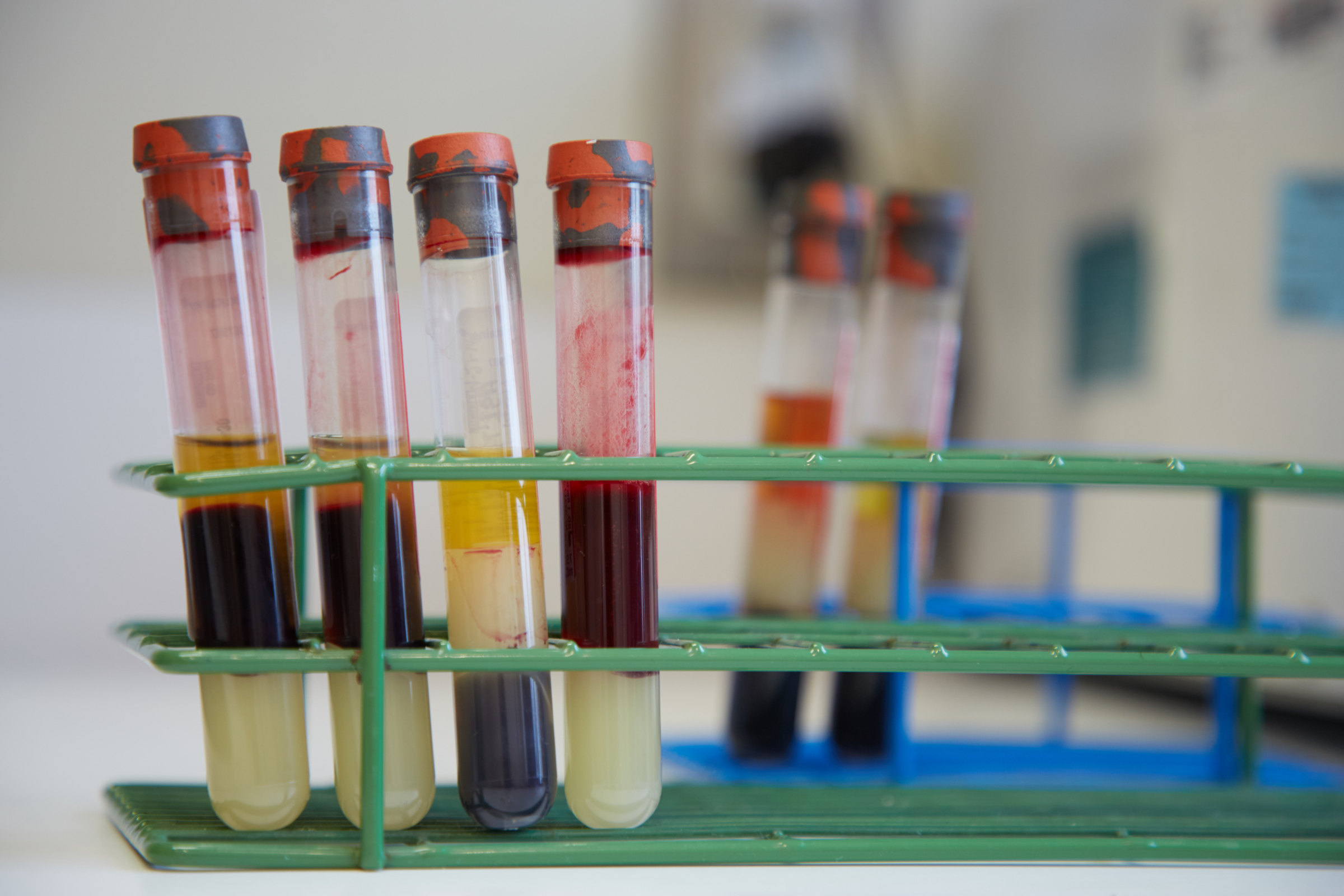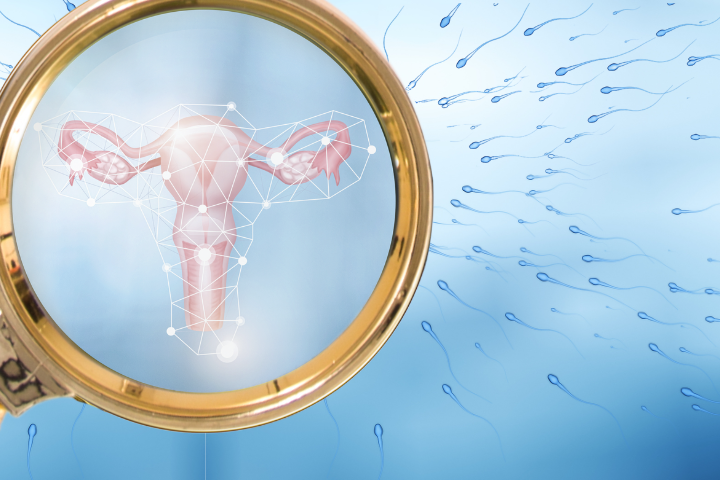Polycystic ovary syndrome (PCOS) and endometriosis are two of the most common gynecological conditions affecting women of childbearing age. Though both can cause fertility problems and impact daily life, these conditions differ in many key aspects, including their causes, symptoms, and treatments. In this article, we’ll explore both PCOS and endometriosis, highlighting how they overlap and where they diverge. We’ll also answer a common question: “Does PCOS cause endometriosis?” to clarify any confusion surrounding the two conditions.
 What Is PCOS?
What Is PCOS?
PCOS is a hormonal disorder that primarily affects the ovaries. Women with PCOS often have ovaries containing multiple small follicles (often mistakenly referred to as cysts) that fail to develop properly. These small, underdeveloped follicles can disrupt the menstrual cycle and ovulation, making conception difficult. However, PCOS is about much more than just polycystic ovaries.
Symptoms of PCOS
The symptoms of PCOS are wide-ranging and can vary in severity. The most common symptoms include:
- Irregular or absent periods: Women with PCOS often have long cycles or may miss periods altogether.
- Fertility issues: Because ovulation is irregular or absent, conceiving can be challenging for women with PCOS.
- Weight gain and difficulty losing weight: PCOS often leads to metabolic issues, making weight management difficult.
- Hirsutism: Unwanted hair growth, especially on the face and body, is common due to higher-than-normal androgen (male hormone) levels.
- Alopecia: Thinning hair or hair loss is another symptom caused by increased androgens.
- Acne and oily skin: Hormonal imbalances can cause persistent acne and excess oil production, particularly on the face.
 What Is Endometriosis?
What Is Endometriosis?
Endometriosis is a condition in which tissue similar to the lining of the uterus (endometrium) grows outside the uterus, often on the ovaries, fallopian tubes, or other parts of the pelvic area. Each month, this tissue acts as if it were inside the uterus: it thickens, breaks down, and bleeds. However, because the tissue is outside the uterus, it has no way to exit the body, causing pain, inflammation, and scar tissue formation.
Symptoms of Endometriosis
Endometriosis can cause a variety of symptoms, most of which are related to pain and bleeding. Common symptoms include:
- Severe menstrual pain (dysmenorrhea): Women with endometriosis often experience debilitating pain during their periods, far beyond the typical cramps.
- Heavy bleeding: Periods may be heavier than normal, or women might experience bleeding between periods.
- Pain during or after sex: Endometriosis can cause pain during sexual intercourse due to tissue growth in areas affected by movement and pressure.
- Pain during bowel movements or urination: The growth of endometrial-like tissue on or near the intestines or bladder can cause discomfort during bowel movements or urination, especially during menstruation.
- Fatigue: Chronic pain and inflammation can lead to extreme tiredness.
Differences Between PCOS and Endometriosis
Although both conditions affect the reproductive system, PCOS and endometriosis are very different in terms of their causes, symptoms, and how they impact the body.
Underlying Causes
- PCOS is primarily caused by hormonal imbalances, particularly an excess of androgens (male hormones) and insulin resistance. Genetics also play a role, as PCOS tends to run in families. The condition is closely linked to metabolic issues like obesity and type 2 diabetes.
- Endometriosis, on the other hand, is a tissue disorder. It is caused by the abnormal growth of endometrial-like tissue outside the uterus. While the exact cause of endometriosis is still unknown, several theories exist. These include retrograde menstruation (where menstrual blood flows backward into the pelvis), immune system dysfunction, and genetic predisposition. Unlike PCOS, endometriosis is not associated with hormonal imbalances or metabolic problems.
Symptoms
- Visible Symptoms: PCOS often manifests in visible physical symptoms such as weight gain, hirsutism, acne, and hair loss. Endometriosis, in contrast, is more associated with pain-related symptoms like severe cramps, pelvic pain, and discomfort during sex or bowel movements. These symptoms are less outwardly visible, which can make diagnosing endometriosis more challenging.
- Menstrual Cycle: Women with PCOS often have irregular or absent periods, while those with endometriosis typically experience painful but regular cycles. Heavy menstrual bleeding can occur in both conditions, but it’s more closely associated with endometriosis.
Metabolic Impact
PCOS has a direct impact on a woman’s metabolic health. Many women with PCOS struggle with insulin resistance, which can lead to weight gain, type 2 diabetes, and an increased risk of cardiovascular disease. Endometriosis, on the other hand, does not typically cause metabolic issues.
Similarities Between PCOS and Endometriosis
While PCOS and endometriosis are very different conditions, there are a few key similarities, especially in how they affect fertility and the challenges they pose for diagnosis.
Fertility Problems
Both PCOS and endometriosis are among the leading causes of female infertility. In PCOS, the hormonal imbalances prevent ovulation, making it difficult to conceive. In endometriosis, the abnormal tissue growth can damage reproductive organs or block the fallopian tubes, preventing the egg and sperm from meeting.
Chronic Conditions
Neither PCOS nor endometriosis is curable. Both are chronic conditions that women must manage throughout their lives. The symptoms can fluctuate in severity, and treatments are aimed at managing symptoms rather than offering a permanent solution.
Inadequately Diagnosed
Both conditions are often inadequately diagnosed. PCOS can be overlooked because its symptoms, such as acne and irregular periods, are sometimes mistaken for normal signs of puberty or young adulthood. Endometriosis is difficult to diagnose without surgical intervention (usually laparoscopy), as its symptoms can mimic other conditions such as irritable bowel syndrome (IBS).
Can You Have Both PCOS and Endometriosis?
Yes, it is possible to have both PCOS and endometriosis at the same time. However, it is uncommon. While some studies suggest that women with one condition might be more prone to developing the other, more research is needed to establish a clear connection. Managing both conditions simultaneously can be especially challenging because each has its own unique set of symptoms and treatment approaches.
Does PCOS Cause Endometriosis?
No, PCOS does not cause endometriosis. These are two separate conditions with distinct causes and mechanisms. PCOS is caused by hormonal imbalances, particularly an overproduction of androgens and insulin resistance. Endometriosis, on the other hand, is a tissue disorder involving the growth of endometrial-like tissue outside the uterus.
Although women with both conditions may experience some overlapping symptoms, such as fertility problems or irregular periods, the presence of one does not trigger or cause the other. They are distinct health issues that require different diagnostic tests and treatment plans.
Treatment Options for PCOS and Endometriosis
Despite the fact that neither condition can be cured, there are many ways to manage the symptoms of both PCOS and endometriosis. Treatments are often personalized depending on the severity of symptoms and a woman’s reproductive goals.
PCOS Treatments
- Weight Management: Losing even 5% of body weight can help improve many PCOS symptoms, particularly with regard to insulin resistance and hormone levels.
- Birth Control Pills: Hormonal contraceptives can help regulate periods, reduce acne, and lower androgen levels to reduce hair growth.
- Insulin-sensitizing Drugs: Medications like metformin can improve insulin resistance and help regulate menstrual cycles.
- Fertility Treatments: Women with PCOS who are trying to conceive may benefit from fertility drugs that stimulate ovulation.
Endometriosis Treatments
- Pain Relief: Over-the-counter painkillers like ibuprofen can help manage the pain and inflammation caused by endometriosis.
- Hormonal Treatments: Birth control pills or other hormone-based therapies can reduce or stop periods, relieving pain and slowing the growth of endometrial tissue.
- Surgery: In more severe cases, surgery may be necessary to remove endometrial tissue. For women with severe symptoms, a hysterectomy may be a last-resort option.
Conclusion
PCOS and endometriosis are two common yet distinct reproductive conditions. While both can cause fertility problems and impact a woman’s quality of life, they differ in their causes, symptoms, and treatments. PCOS is a hormonal disorder linked to metabolic issues, while endometriosis is a tissue disorder causing pain and inflammation. Understanding the differences and similarities between the two is key to seeking the right treatment and improving quality of life.
At GENESIS, we see many patients with PCOS and/or endometriosis every day; and are proud to be able to help so many patients. We focus on identifying the cause of your issues, whether you are trying to conceive now or sometime in the future. You don’t have to live with pain. Let us show you how.
If you would like to learn more about GENESIS Fertility New York or are ready to schedule an appointment, please speak with one of our representatives at 929-605-5467.






